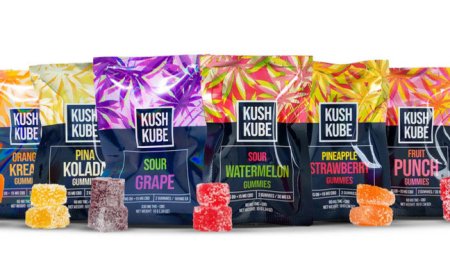Exploring Trends in Betting Advertisement for 2025
As the global market for sports betting and online gaming continues to expand, the role of betting advertisement has become more crucial than ever.

As the global market for sports betting and online gaming continues to expand, the role of betting advertisement has become more crucial than ever. In 2025, operators are facing increasing competition, tighter regulations, and a tech-savvy audience demanding personalized experiences. This article dives into the key trends shaping the landscape of betting advertisement, showing how brands can advertise betting services effectively through innovative strategies and cutting-edge technologies. Along the way, we’ll explore best practices for crafting engaging online betting ads and provide answers to frequently asked questions.
<< Start Advertising & Grow Today! >>
Evolution of Betting Advertisement
From Traditional to Digital-First Campaigns
Over the past decade, betting operators relied heavily on TV commercials, billboards, and print media. However, in 2025, the shift to digital-first campaigns is nearly complete. Brands are leveraging data-driven marketing, social media platforms, and programmatic ad buying to reach niche audiences at scale.
Regulatory Impact on Messaging
With jurisdictions tightening advertising standards—mandating clearer disclaimers and responsible gambling messages—marketers must balance persuasive betting advertisement with compliance. This dual challenge forces creative teams to integrate regulatory text seamlessly, ensuring that ads for gambling remain both compelling and lawful.
Core Trends Driving Betting Advertisement in 2025
Personalization and Data-Driven Strategies
Hyper-Targeted Offers
Personalization is not just a buzzword; it’s a necessity. By analyzing user behavior—such as betting preferences, wagering history, and engagement patterns—operators can deliver bespoke promotions that resonate with individual bettors. For example, someone who frequently bets on football can receive tailored free-bet offers before major matches.
Predictive Analytics
Using AI-powered analytics, brands can forecast user lifetime value and risk profiles. This allows for smarter budgeting on acquisition channels, optimizing spend on high-value segments, and heightening ROI for advertise betting services.
Interactive and Immersive Experiences
Augmented Reality (AR) and Virtual Reality (VR)
AR overlays and VR environments are revolutionizing how audiences interact with online betting ads. Imagine scanning a live match with your smartphone to see real-time odds projected onto the field or experiencing a virtual sportsbook lounge where you can place bets with a swipe of your hand.
Gamification Elements
Integrating gamified features—such as leaderboards, badges, and challenges—into ads boosts engagement. These elements encourage users to interact longer, deepening brand recall and encouraging repeat visits to the betting platform.
AI-Enhanced Creative Optimization
Dynamic Ad Creatives
AI-driven tools can generate multiple ad variations and test headlines, images, and calls-to-action in real time. Through continuous A/B testing, teams can identify the highest-performing creatives and optimize campaigns without manual intervention.
Natural Language Generation (NLG)
With NLG, platforms can automatically draft personalized ad copy, adjusting tone and messaging based on user profiles. This not only accelerates the creative process but ensures that each user receives contextually relevant content.
Mobile-First and App-Centric Approaches
In-App Advertising
Since most bets are placed via mobile apps, embedding online betting ads directly within sister apps—such as sports news or live streaming services—provides a frictionless path to conversion. Native ad placements within app feeds or video pre-rolls can dramatically increase click-through rates.
Progressive Web Apps (PWAs)
Progressive Web Apps combine the best of mobile apps and web pages, offering fast load times, push notifications, and offline capabilities. Betting operators using PWAs for marketing gain a cost-effective way to reach users without the overhead of app store approval processes.
Programmatic Advertising and Real-Time Bidding
Advantages of Programmatic for Betting Ads
Programmatic platforms automate the buying and placement of inventory across ad exchanges. For betting advertisement, this means precise targeting, adjustable bids based on user value, and the ability to pause or scale campaigns instantly in response to live events.
Risk Management with Viewability Metrics
In highly regulated markets, proving viewability and transparency is vital. Programmatic dashboards offer in-depth metrics—such as viewable impressions and fraud detection—that help operators maintain compliance and protect brand integrity.
Social Media and Influencer Collaborations
Native Ad Formats on Social Platforms
Platforms like Instagram, TikTok, and YouTube offer native ad formats—such as Stories, Reels, and in-feed video—that blend seamlessly with user-generated content. By crafting authentic, entertaining online betting ads, brands can cut through ad fatigue and earn engagement.
Influencer Partnerships
Collaborating with sports influencers and betting experts gives operators an edge. These personalities host live betting tutorial sessions, share real-time picks, and showcase exclusive promo codes, driving both awareness and sign-ups for advertise betting services.
Emphasis on Responsible Gambling
Embedding Safe Betting Messages
Given growing scrutiny, operators must foreground responsible gambling messages in their betting advertisement. This includes setting deposit limits, providing self-exclusion options, and directing users to support resources—all seamlessly integrated within ad content.
Measuring Impact of Messaging
A/B testing can show which placements and wording of responsible gambling disclaimers maintain user trust without harming conversion rates. Marketers can then refine their approach to achieve a balance between user protection and profitability.
Measuring Success: Key Metrics and KPIs
Conversion Rate and Customer Acquisition Cost (CAC)
Conversion rate remains a core metric for online betting ads. By tracking sign-ups per impression and cost per acquisition, teams can adjust bids and creatives to improve profitability.
Lifetime Value (LTV)
Monitoring LTV helps operators understand which channels deliver high-value customers. Integrating LTV data into programmatic bidding engines ensures budget allocation towards the most lucrative segments.
Engagement and Retention Rates
Tracking in-app activity—such as number of sessions, bet frequency, and active days—provides insights into the effectiveness of advertise betting services strategies. High retention often indicates successful onboarding and ongoing engagement tactics.
Conclusion
The future of betting advertisement in 2025 and beyond lies at the intersection of advanced technology, data-driven personalization, and ethical marketing practices. By embracing AI, interactive experiences, and responsible gambling initiatives, operators can create compelling online betting ads that drive growth, build trust, and stand out in an increasingly crowded marketplace.
Frequently Asked Questions (FAQs)
What makes effective betting advertisement in 2025?
Ans: Effective betting advertisement combines data-driven personalization, immersive technologies like AR/VR, and clear responsible gambling messages. It’s also optimized continuously through AI-powered testing to ensure peak performance.
How can I advertise betting services responsibly?
Ans: To advertise betting services responsibly, include clear disclaimers, age-gating, links to support resources, and self-exclusion options in all ad creative. Use A/B testing to find formats that maintain both user trust and engagement.
Which platforms are best for online betting ads?
Ans: Mobile apps (both native and PWAs), social media channels (Instagram, TikTok, YouTube), and programmatic DSPs are top choices for online betting ads. The ideal mix depends on your target demographics and budget.
How important is AI in optimizing betting advertisement?
Ans: AI is crucial for real-time creative optimization, predictive analytics, and hyper-targeted personalization. It reduces manual workload and enhances campaign ROI by identifying top-performing segments and ad variations.
What are common KPIs for betting campaigns?
Ans: Common KPIs include conversion rate, customer acquisition cost (CAC), lifetime value (LTV), session frequency, average bet size, and retention rate. Monitoring these helps refine strategy and maximize profitability.

















































































